Recommended For Late Winter
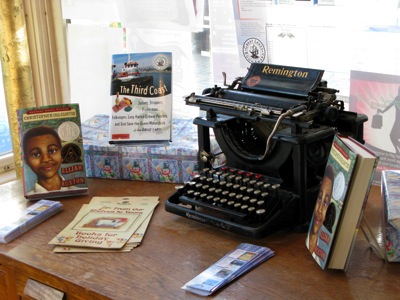
It’s not spring yet, so to while away those occasional snow showers and freezing temperatures, here are a few stimulating book recommendations.
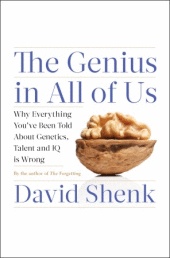
The Genius in All of Us: New Insights into Genetics, Talent, and IQ
By David Shenk
2010 – Doubleday, 320 pages
Back in my college anthropology classes, the phrase “nature vs. nurture’ was a constant. The debate was always raging over what had the strongest influence on us – our genes or our culture. Being anthropologists, we couldn’t help but give culture the edge. However the rest of the sciences long held that genes were the deciding factors.
Now comes David Shenk’s ‘The Genius In All of Us’ which examines how our genes are continually involved in a dynamic process with our environment. Or as Shenk states in Chapter Two “Intelligence is not an innate aptitude, hardwired at conception or in the womb, but a collection of developing skills…No one is born with a predetermined amount of intelligence. Intelligence (and IQ scores) can be improved. Few adults come close to their intellectual potential.”
This is not a self-help book however but a reminder that talent is not pre-ordained; no one is born with a special gift for sports or music. Instead the standouts in such fields – and Shenk uses Ted Williams, Mozart and Michael Jordan as three examples – were willing to spend endless years practicing and learning their skills, and then were lucky to be placed in an environment that stimulated and encouraged such efforts.
In fact this book gives you hope that you might yet learn how to play the cello or write the Great American novel…if you’re willing to put in the tremendous effort necessary. As an example of just how this works, Shenk goes into detail about how Mozart came to be – well – Mozart. For starters, he was born into a family with a father obsessed with musical excellence and an older sister who was already being trained in a technique startlingly like the Suzuki method. Shenk also explains why Mozart was in the minority of child prodigies who go on to become adult successes. So after taking a few pointers from this book, you might think about getting ready to write that sonata.
After detailing how and why IQ tests were created, Shenk goes on to discuss the frequently overlooked dissimilarities of twins. Finally in the second half of the book, Shenk explains how we have more control over our genetic heritage than we realize, believing that the old paradigm nature vs. nurture should be replaced with “dynamic development.”
He writes, “Every day in every way you are helping to shape which genes become active. Your life is interacting with your genes.” Or as Shakespeare said much more poetically, “The fault, dear Brutus, is not in our stars, but in ourselves.”
As always, Shakespeare got it right.
(Sharon Pisacreta, Feb. 2011)
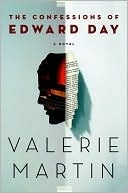
The Confessions of Edward Day
By Valerie Martin
2009 – Nan A. Talese, 304 pages
Readers shouldn’t be surprised that a book beginning with the line “My mother liked to say Freud should have been strangled in his crib.” is going to take a strong interest in the psychological quirks of its characters. And what a fascinating – and quirky – group of characters it showcases. First and most important is the narrator of the piece, Edward Day. Day is an ambitious actor who may not always be likable, yet remains sympathetic as we follow him from struggling acting student days to successful Broadway debut.
Along the way we meet a colorful and interesting coterie of fellow professionals. Most intriguing is Guy Margate, a fellow actor and rival. When Edward is saved from drowning early in the story by Guy, it is a mixed blessing. And their subsequent encounters are marked by such guilt, resentment, suspicion and jealousy that it can only end in violence.
All of the characters are expertly drawn, and Guy Margate is a character as unnerving as Melville’s strange Bartleby the Scrivener. Since the story is narrated by Edward, you may find yourself wondering if he is simply viewing Guy so negatively because he resents having to be grateful to him for saving his life. However there is a distinctly creepy, ominous quality to Guy that also brings to mind a figure straight out of Edgar Allen Poe. And the reader somehow knows this relationship cannot end well.
Set primarily in the 1970s, The Confessions of Edward Day is wonderfully evocative of that decade; especially for the exciting period it was for many in the theater world in New York City. Author Valerie Martin, best known for her novel ‘Mary Reilly’ (later made into a film starring Julia Roberts), spent considerable time observing theater actors, and her research has resulted in a wonderful portrait of the passion and pettiness that drives the acting profession.
Yet as self-absorbed as the actors often appear, the portrait is not unkind. Instead, narcissism is seen as a necessary trait for anyone who wants to undertake a profession of ‘make-believe’. If you love the theater, you’ll love this book. But even if you don’t know Sondheim from Stoppard, you’ll still be caught up in the engrossing, unpredictable and hauntingly told tale of Edward Day.
(Sharon Pisacreta, Feb. 2011)
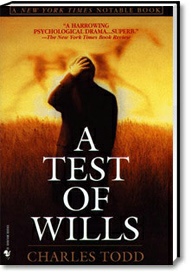
A Test of Wills (Inspector Ian Rutledge Mysteries)
By Charles Todd
Harper 2006 - 320 pages
Charles Todd is a mother and son writing team, whose specialty in historical mystery is delving into the emotions of all their series characters. Inspector Ian Rutledge, shell-shocked during World War I, returns to London and battles to recover his sanity as well as his job at Scotland Yard. He is haunted not only by memories of horrifying conditions in the trenches, but by the ghost of Corporal Hamish Macleod. MacLeod, a former soldier under his command, is now his constant companion. a sounding board during murder investigations -- and his tormentor.
The first three books of the series, A Test of Wills, Wings of Fire and Search the Dark, prove that team Todd know how to plot well-crafted fiction. They also eke out secrets in small doses to keep the reader hungry for more. Rutledge’s aching vulnerability is the strongest draw, and his superior’s habit of putting him in the most difficult-to-solve cases in hopes of failure ratchet up reader sympathy. You root for Rutledge in subsequent books, Legacy of the Dead, Watchers of Time and A Fearsome Doubt, which was incredibly strong in exploring the theme of justice.
A reader cannot realistically jump into the middle of this series and understand the depth of the Hamish-Rutledge relationship. It’s best to start at the beginning, even though Todd includes tidbits of information about the duo. Some readers, perhaps the ones who love Janet Evanovich and prefer faster pacing or snappy dialogue, might find the historical details and narrative too plodding. Traditional mystery readers, especially those who love becoming enmeshed in the past, tend to soak up the slower style and beg for more.
Team Todd started a new mystery series with World War I nurse Bess Crawford. Perhaps they became stretched thin trying to keep the Rutledge series going strong without boring the reader. Whatever the case, kudos for Charles Todd. Mother and son have certainly earned a hallowed place on the mystery bookshelf.
—Meg Mims
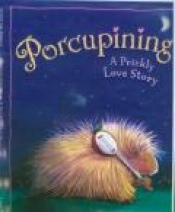
Porcupining: A Prickly Love Story
by Lisa Wheeler
2002 - Megan Tingley Books, 32 pages
The artwork and story in this picture book blend well. Read this to your toddlers through second graders as a Valentine’s Day treat. Lisa Wheeler’s lonely, prickly porcupine strums a banjo and sings to prospective suitors—without realizing his words may sting. And then he meets Barb… youngsters will laugh if you sing the songs in a silly voice, too. They ought to get the hidden message of “you can win friends with honey rather than vinegar,” and how once found, love can be sweet.
(Meg Mims, Feb. 2011)
And here’s a film recommendation...just in time for St. Patrick’s Day.
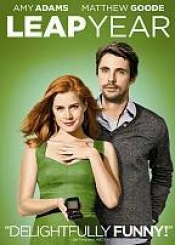
Leap Year
2010, 101 minutes, Universal Pictures.
For a perfect St. Patrick’s Day movie, indulge in the lush scenery of Ireland and the funny irreverent Irish and American dialogue exchange between the heroine and true hero of this movie. Amy Adams plays a young woman yearning for the perfect marriage—including a stunning apartment, a huge ring and a wonderful husband. Her boyfriend, however, is reluctant to commit, so off she goes to the Emerald Isle, the one place she learns she can pop the question on “Leap Day.”
Hilarity ensues, of course, although you root for the heroine all the way through until she learns the real lesson—perfection may not be the answer. Whether or not you believe the film’s premise, it’s sweet and romantic nonetheless. And Ireland shines, along with the people and that lilting dialect. Top of the evening to you!
(Meg Mims, Feb. 2011)
Feb '11 - Mar '11